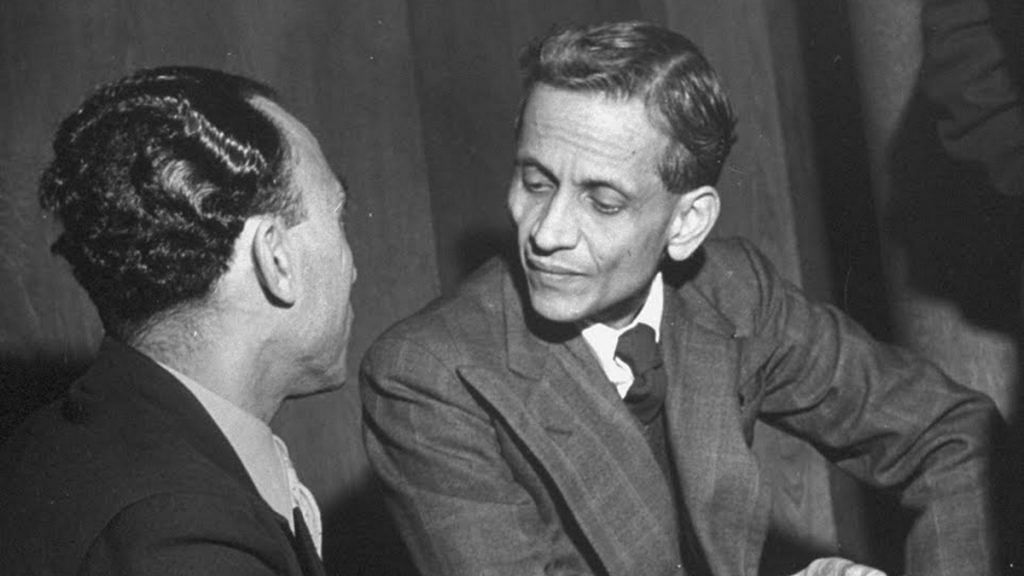On his 119th birth anniversary, ThePrint remembers the man who founded one prominent Communist party and was responsible for the birth of another.
New Delhi: Any account of the Indian Communist movement or trade unions would be incomplete without highlighting the contributions of Shripad Amrit Dange, who was born on this day (10 October) in 1899.
Dange was a prominent trade unionist and later president of the Communist Party of India, who was among the prime reasons for the CPI(M) to break away from the party in 1964. And yet, later, he was expelled from the CPI, which he had helped found.
This turbulence has overshadowed his contributions to the Marxist cause in India.
Becoming a Communist
Born into a Marathi Brahmin family in Nashik district in Maharashtra, Dange used to help his father trade shares in the Bombay Stock Exchange as early as the age of 19. But soon, the freedom movement inspired him to join politics. After the death of his father, Dange left his studies and joined Mahatma Gandhi’s Non-Cooperation Movement.
Soon, though, he grew sceptical of Gandhism, and came increasingly under the influence of Marxism. In 1921, wrote a pamphlet called Gandhi vs Lenin, which reflected better on the Soviet leader, which impressed prominent Communist leader M.N. Roy.
A flour mill owner in Bombay, R.B. Lotvala, read it and sponsored Dange’s study of Marxism for several years, also helping him launch a weekly journal called Socialist, the first of its ideology in India.
Also read: Gokulbhai Bhatt, the Constituent Assembly member who called the Constitution ‘un-Indian’
Dange spent a total of 16 years in prison for his involvement in various ‘plots’ during the freedom struggle, such as the Kanpur Bolshevik conspiracy case (for conspiring to overthrow the British government) and the Meerut conspiracy case (in which several trade unionists were arrested for organising a railway strike).
Trade union leader
In 1927, he became an active trade unionist in Bombay, and was a prominent leader of the Girni Kamgar movement, which was protesting against the exploitation of workers in the city’s textile mills.
Dange played a major role in increasing the membership of the union from 324 to 54,000. He also started a Marathi weekly called Kranti, which served as the movement’s mouthpiece.
Dange served as joint secretary — and later president — of the All India Trade Union Congress and was part of the working committee of the World Federation of Trade Unions in 1945. He played a major role in the trade union movement for more than six decades.
Political journey
Dange, along with prominent socialists like Shaukat Usmani and Muzaffar Ahmed, was among those present when the CPI was born at a meeting in Kanpur in 1925, under the chairmanship of Singaravelu Chettiar.
He served as a member of the Bombay Legislative Assembly from 1946-51. He was also elected as a member of the second and fourth Lok Sabhas from the Bombay City Central constituency.
One of his major political contributions came when he helped carve Gujarat and Maharashtra out of the old Bombay state, on the grounds of linguistic differences.
Dange’s rise within the CPI began in 1950, when he became part of the party politburo. He rose to the rank of party chairman in 1962 and continued in the post till 1980.
Split and expulsion
According to a report published in India Today, Dange had allegedly written letters to the British government in which he had promised to provide “information” to them in exchange for release from jail.
These letters, called forgeries by Dange, played a major role in the split of the party in October 1964, which led to the birth of the Communist Party of India (Marxist).
Also read: Ashoke Kumar Sen – India’s inevitable law minister for decades
Dange, who had adopted more of a Centrist approach and supported prime ministers Jawaharlal Nehru and Indira Gandhi, was also embroiled in controversy when he supported the latter’s Emergency.
After a spate of intra-party conflict, Dange first stepped down as chairman in February 1980, and then was expelled by the party he helped found on 12 April 1981.
The next month, Dange and his daughter Roza Deshpande formed the All India Communist Party, but the veteran was never a relevant political figure again.
Death and accolades
Dange passed away in Bombay in May 1991, at the age of 91.
In his lifetime, he was awarded the Order of Lenin, the highest decoration of the Soviet Union.
He also penned a number of books that were well-received, including Literature and People and From Primitive Communism to Slavery.
